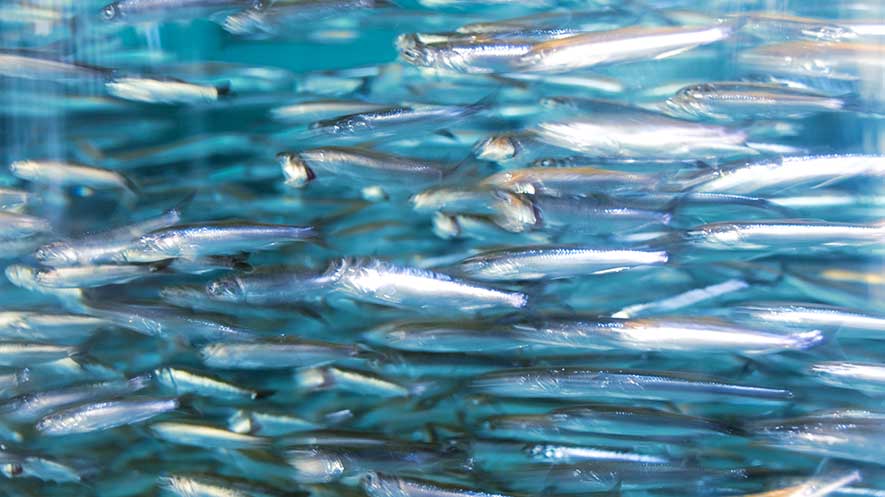When a small fish, like an anchovy, is eaten by a larger predator, whatever is in that smaller fish extends up the entire food chain. That’s why it’s important for us to understand why more than fifty marine species seem driven to ingest plastic debris.
According to a paper published 16 August 2017 in Proceedings of the Royal Society B, some fish aren’t just eating plastic by accident. Because of the way plastic smells in the marine environment, they search it out as prey.
The published paper: “Odours from marine plastic debris induce food search behaviours in a forage fish” says that “recent evidence suggests that the chemical signature of plastic debris may explain why certain species are predisposed to mistaking plastic for food.”
The researchers found that “anchovy schools responded to plastic debris odour with increased aggregation and reduced rheotaxis.”
This behavior is similar to the effects that actual food has on anchovy schools, which implies that the fish use a chemosensory mechanism, such as smell, to detect and forage for plastic. The researchers also tested anchovy reaction to odorless plastic, which the fish did not seek out.
The authors, led by Dr. Matthew S. Savoca from the University of California at Davis, conclude that “Given the trophic position of forage fish, these findings have considerable implications for aquatic food webs and possibly human health.”
ECO readers may recall that Dr. Savoca led a similar study, published in 2016, which found that seabirds are driven by scent to consume plastic.



